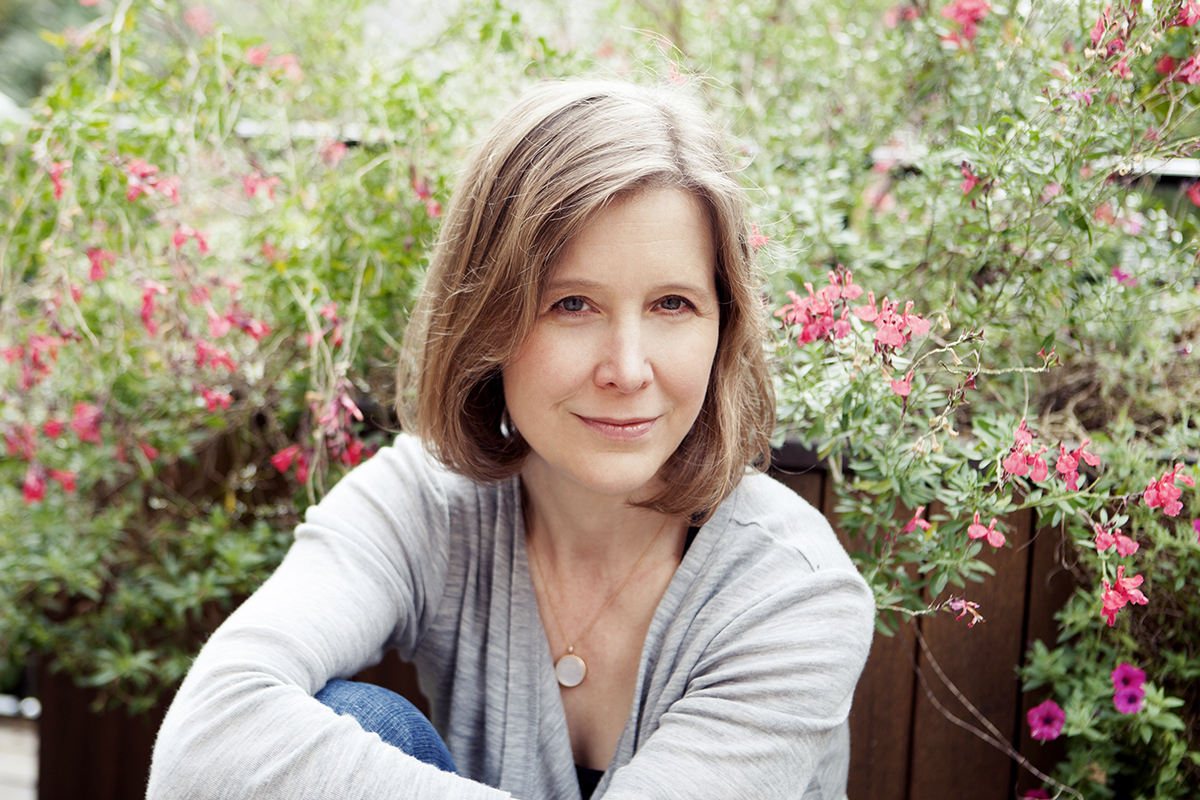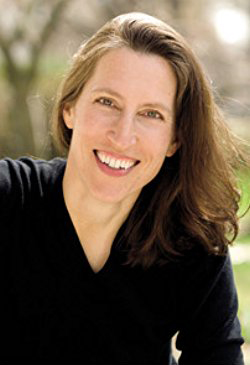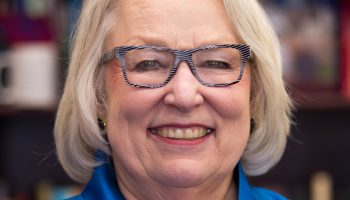Ann Patchett and Jane Hamilton have put their heads together and figured out exactly why they’ve been invited to Chautauqua.
Patchett’s book, Commonwealth, begins with a christening party that gets a little out of hand, thanks to some gin and orange juice. Hamilton’s, The Excellent Lombards, is set on a family’s apple orchard.
“It’s apples and oranges,” Patchett said.
“We know that’s the only reason why we’re here,” Hamilton said.
Hamilton and Patchett will discuss their novels — this week’s Chautauqua Literary and Scientific Circle selections — at 3:30 p.m. Thursday in the Hall of Philosophy for Week Nine’s CLSC Roundtable. The two writers will present for the CLSC in much the same way they tackled their Daily interview: together.
Sherra Babcock, vice president and Emily and Richard Smucker Chair for Education, said both Hamilton and Patchett are popular authors who have also received acclaim for their writing. Babcock said she wanted to honor that intersection between popularity and praise by choosing The Excellent Lombards and Commonwealth as CLSC selections.

“A lot of people look forward to reading their work,” Babcock said. “People look forward to the next book by Ann Patchett, the next book by Jane Hamilton.”
Having Hamilton and Patchett present their work together also felt like an excellent way to wrap up the CLSC programming for the season, Babcock said.
“Ending with this celebration of these two big books that are not only beautifully written, but have also done really well in terms of popularity — I think that’s just a great way to end the season,” Babcock said.
It helps that Hamilton and Patchett are friends, Babcock said, which means the audience will get to listen in on two authors who “are natural together.”
Patchett said she and Hamilton really are good friends, so they already speak to each other all the time. And there’s no way to fail when you’re onstage with someone you know and like, Patchett said.
They also know each other’s work well — and they’re often some of the first people to read it, Patchett said.
“We read our books out loud to each other,” Patchett said. “And we are, if not each other’s first readers, very early-on readers.”
Besides being friends, they’ve also interviewed each other before. Hamilton recalled a time when she interviewed Patchett for Symphony Space. Hamilton said she asked Patchett a question that she already knew the answer to, but she knew would lead to a good story.
“And you said, ‘Mrs. Willard!’ — that’s my married name — ‘You’re throwing the fish to the seals! Arf arf arf!’ ” Hamilton said, doing her own impression of Patchett’s seal impression. “That’s one of my favorite moments with you.”
“And I appreciated those fish,” Patchett said.
/ / /
Reporter’s Notebook
The Chautauqua Literary and Scientific Circle Historic Book List features hundreds of selections, some of which present themes similar to 2017’s CLSC selections.
If you liked Commonwealth and The Excellent Lombards, you might also like…
• American Elegy: A Family Memoir by Jeffrey Simpson (1997-1998)
• Brookland by Emily Barton (2007-2008)
• Making Toast: A Family Story by Roger Rosenblatt (2010-2011)
Finally, five extra recommendations from the reporter:
• The Wangs vs. the World by Jade Chang
• LaRose by Louise Erdrich
• News of the World by Paulette Jiles
• A Thousand Acres by Jane Smiley
• I Capture the Castle by Dodie Smith
The Excellent Lombards and Commonwealth both focus on families.
Hamilton’s fictional family, the Lombards, is rooted to their apple orchard. Patchett’s fictional families, the Keatings and the Cousinses, are scattered as the result of a stolen kiss at that infamous christening party.
“A difference between the two books is that my characters are in a family that’s been smashed and rebuilt, smashed and rebuilt, and your characters are in a system that’s never been broken down,” Patchett said to Hamilton. “The whole family farm — it’s not just this generation. They are cemented by many generations.”
Patchett said Hamilton’s book is about the Lombards trying to figure out how their family farm can survive, especially when they can see “the end of the era coming.”
“And the parents are looking at the children and thinking, ‘How can we break this apart? Or how can we preserve it so everybody won’t be killed by it?’ ” Patchett said.
“That sounds really good, Ms. Patchett,” Hamilton said.
“And then in my book, it’s just like, scene one: whack,” Patchett said. “But that’s also true of us. You’ve been married 35 years. You have been in the same house in the same place. Your parents stayed married, and after your dad died your mom didn’t marry anybody else. My parents were just like, marry, marry, marry, marry.”
Hamilton said that each time a family is shattered and reformed by divorce and marriage — which is what happens in Commonwealth and what happened in Patchett’s own childhood — it’s “like a kaleidoscope.”
Patchett said she liked that imagery.
“That’s exactly right, and it does really represent our experiences,” Patchett said. “Yours being cemented — how do you break it? And mine being fragile from having been broken so many times.”
Both authors said that the books are their most autobiographical. They’ve written far outside their own experiences before, but The Excellent Lombards and Commonwealth offer fictional slices of life that are much closer to home for Hamilton and Patchett.
Patchett said the hardest part of writing Commonwealth was just deciding to do it.
“But once — and this is true in every aspect of my life — once I make a decision, I do not ever second-guess myself,” Patchett said. “I will be very thorough and cautious in making a decision. I don’t ever make a snap decision about anything. But once I’ve made up my mind, that’s it.”
Patchett said by doing all of this work “up front,” she was put at ease once she started writing.
“I knew who these people were, I could steal attributes from real people and put them on the characters,” Patchett said. “It was a lot of fun.”
Hamilton said she operated in a “far more immoral way.” She decided The Excellent Lombards was the book she wanted to write, and she would “deal with the fallout later.”
“There’s a lot of material that I had available to me,” Hamilton said. “And I could’ve written an epic, but I wanted to write a poem.”
Her husband was “deeply worried” when the book was about to be released, Hamilton said.
“But my relatives are not readers, it turns out,” Hamilton said. “We’re also polite people. So I guess, so far, so good.”
Hamilton keeps a quote from Willa Cather by her desk — one she thinks informs the tensions of most fiction. It’s a quotation from a piece of literary criticism Cather wrote on the stories of Katherine Mansfield: “One realizes that even in harmonious families there is this double life: the group life, which is the one we can observe in our neighbour’s household, and, underneath, another — secret and passionate and intense — which is the real life that stamps the faces and gives character to the voices of our friends,” Cather wrote. “Always in his mind each member of these social units is escaping, running away, trying to break the net which circumstances and his own affections have woven about him. One realizes that human relationships are the tragic necessity of human life; that they can never be wholly satisfactory, that every ego is half the time greedily seeking them, and half the time pulling away from them.”
“That’s the human tragedy,” Hamilton said. “You want this thing, but you also cannot bear it.”

That thing is exactly what Hamilton’s central character in The Excellent Lombards, Mary Frances Lombard, both wants and cannot bear. As the novel follows her development from childhood into her teenage years, it becomes clear she wants to be embedded in her family and for things to never change.
“I think the pleasure of writing an adolescent character is that they are so wrong about things, but also right about fundamental things, too,” Hamilton said.
Patchett said that while their books feature very different types of families — rooted and blended — one element their novels have in common is the children they feature.
“They are there, they think they have seen it, they think they know exactly what is going on and they don’t have any idea of what’s going on,” Patchett said. “And they never ask because they’ve been there and they’ve seen it.”
“And they’re keeping a secret, too,” Hamilton said, referencing a dark secret the six Keating-Cousins children keep over the years.
“We know that’s true in children, but really it’s also true in adults,” Patchett said. “We think we know what’s going on, we think we know right from wrong, but in fact we don’t know half the time.”
/ / /
The authors are presenting their work on a week focused on food at Chautauqua. Week Nine’s theme is “At the Table: Our Changing Relationship with Food.”
Food is a detail that many writers of fiction tend to bypass, but both Hamilton and Patchett said it’s key to the novels they’re presenting Thursday.
“Food is important and it offers a place for people to come together,” Hamilton said. “So a dining room scene can often be revelatory. This is a farm, and they’re eating the produce.”
The outside world “leaks in,” however, when Mary Frances’ mother becomes interested in cooking, Hamilton said.
“That’s just one way to bring the world to the table,” Hamilton said. “And the kids don’t like it — when did noodles become pasta? Why is our mother such a snob?”
Hamilton said besides showing how the outside world can intrude on a family unit, she likes to describe food and likes reading about it, too.
“It’s a sensual pleasure to spend time thinking about food and describing it,” Hamilton said.
Patchett offered a different take: in Commonwealth, food portrays “service and oppression.”
“The most autobiographical part of that novel is when Franny is in Amagansett and is just cooking and cooking and cooking and picking up glasses and scraping plates and emptying ashtrays,” Patchett said, referencing a scene in which Franny Keating takes on the task of cooking lobster and entertaining a group to impress her lover.
“And sometimes I feel like that’s all I ever do,” Patchett said. “So it isn’t about this sensual pleasure of eating, it’s just about figuring out how in God’s name do you get all of these people fed, and the women’s work of food.”
Regardless of how they portray food and families, though, Patchett and Hamilton hope that their books leave people hungering for more.
“I hope that they have such a good experience with the book that they will want to read another book by anyone else: that the reading will perpetuate reading,” Patchett said.
Patchett said she loves when she reads a book that makes her want to seek out more.
“I — and I’m sure this is me as a bookseller — I love the idea of a book just pushing people forward to more books,” Patchett said. “That’s what I want.”
“I love that,” Hamilton said. “I agree.”




